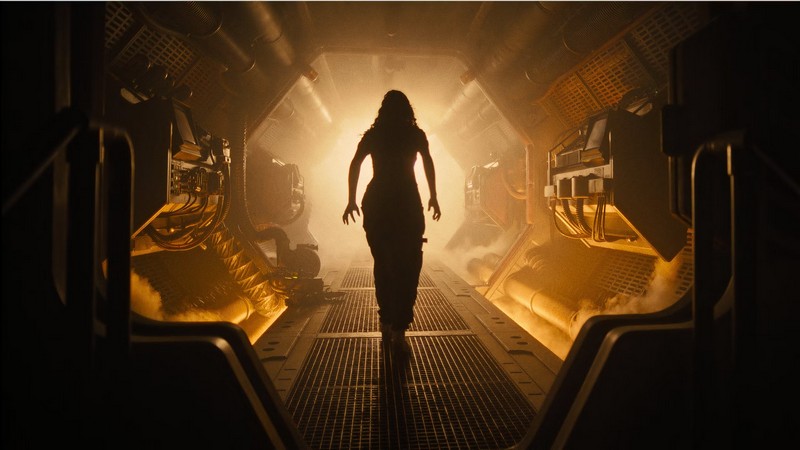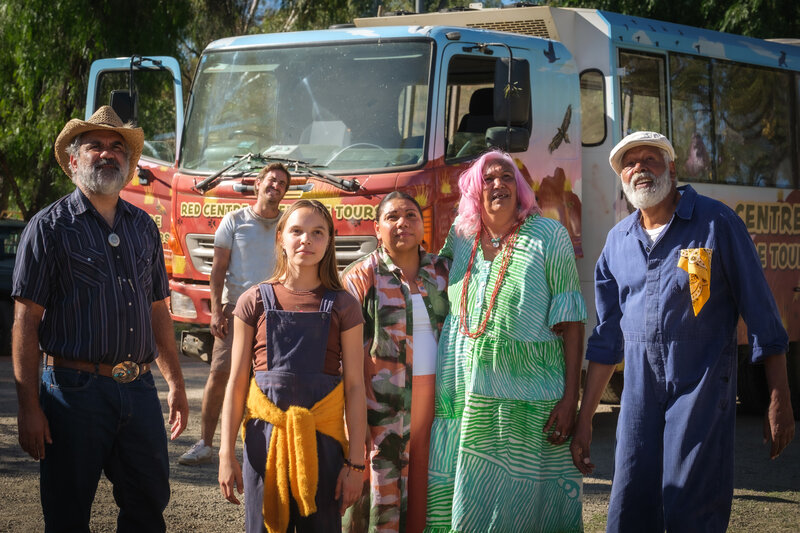Among Alien fandom there’s a broad consensus that the canonical films are the first two: Ridley Scott’s Alien (1979) and James Cameron’s Aliens (1986). Fede Alvarez’s new instalment Alien: Romulus is perhaps ideally placed between the two. So it serves as a kind of sequel to Alien and a prequel to Aliens.
For me at least, the alien remains one of the most terrifying creations of the cinema. Perhaps because it taps into several different human fears at once. It’s a contagion, a parasite and a predator all at once. Its strong defence mechanisms make it a formidable (though, as we know, not invulnerable) nemesis. Those qualities – combined the fact the humans were trapped in space with one – made Alien a classic of the genre.

Alvarez comes from a horror background including Evil Dead (2013) and Don’t Breathe (2016). His most recent feature film, The Girl in the Spider’s Web (2018), however was underwhelming. Here Alvarez re-teams with frequent collaborator Rodo Sayagues on the screenplay. The result is often gripping but uneven.
If you recall your Alien lore, in the first film the crew of the Nostromo landed on a barren planet, later identified as LV-426. After defeating the alien, survivor Ripley drifted in space for 57 years before being rescued. In Aliens, LV-426 had been colonised by humans. Alien: Romulus takes place in the earlier years of that colonisation. The world of the colony is grim. In a hostile environment, the primary human activity (apart from atmosphere processing) is mining. It’s dirty and dangerous work. The company that runs the mine heartlessly controls virtually every aspect of life. Diseases sweep through the settlement regularly.
But a group of young adults dreams of a better future. They’ve heard about a distant planet where you can actually see its sun. But getting there will take nine years, meaning they need sleep pods (familiar from the earlier films) to make the journey.
And a stroke of fortune has come their way. Tyler (Archie Renaux) has discovered that a derelict space station has drifted into LV-426’s orbit. Scans have revealed it holds the pods they need. So Tyler enlists pilot Navarro (Aileen Wu) to fly a mining hauler to the station and retrieve the pods, and hopefully get out of LV-426 forever. Along to help are Tyler’s sister Kay (Isabela Merced) and his abrasive cousin Bjorn (Spike Fearn). But they need something else – a “synthetic” to get access to the station. The ideal candidate is Andy (David Jonsson). But he’s been assigned to Rain Carradine (Cailee Spaeny), who considers him a brother. Since Rain won’t let the group take Andy without her, and she shares their desire to leave the colony, she agrees to accompany them. Of course, the space station holds something far more sinister than any of them could imagine.
For two-thirds of its running time, Alien: Romulus is great. The battle by the human characters to escape fearsome creatures in the confines of the space station echoes the original strongly, but works on its own terms. Alvarez makes the most of the industrial aesthetics and delivers inventive ways for the humans try to deal with the threats. He also cleverly calls back to the first two films in several subtle (a neon sign seen in Aliens) and more obvious (a CGI’ed Ian Holm – Ash in the original film – appearing as a “synthetic”) ways.
The biggest problem with the film though comes in the final third. The script spirals out of control and Alvarez seems to lean into the chaos. Without giving anything away, these films have always been strongest when they concentrate on the conflict between the alien(s) and the human(s). Here though Alvarez spins it in a rather different direction that didn’t work for me. Although some of this was hinted at in the more recent “Prometheus” series, I found the way Alvarez dealt with it clumsy and ugly.
Cailee Spaeny – so good in Priscilla – is the lynchpin of the film. And while she’s no Ripley – yet – her performance is definitely a highlight. David Jonsson (Industry – TV) is also great in a role that requires a lot of versatility. Archie Renaux (Morbius) lends solid support as Tyler. However Isabela Merced’s (Madame Web) character isn’t treated well by the script and the remaining characters are basically alien-fodder, so the actors don’t get much of a chance.
Alien: Romulus is a case study in the art of restraint and the dangers of excess. More of the former and less of the latter could have made this a great film. As it is, it’s still mostly a great film, if you can get past the bonkers final bit.
David Edwards
Other reviews you might enjoy:
- The Girl in the Spider’s Web – movie review
- Alien: Covenant – movie review
- Avatar (re-release) – movie review

David Edwards is the former editor of The Blurb and a contributor on film and television





